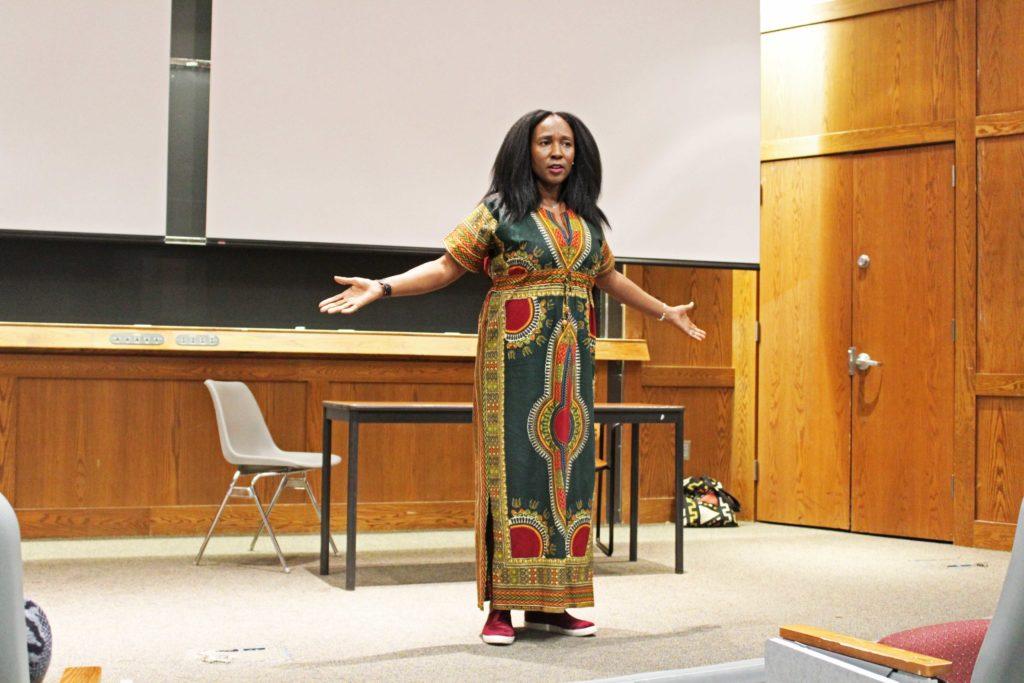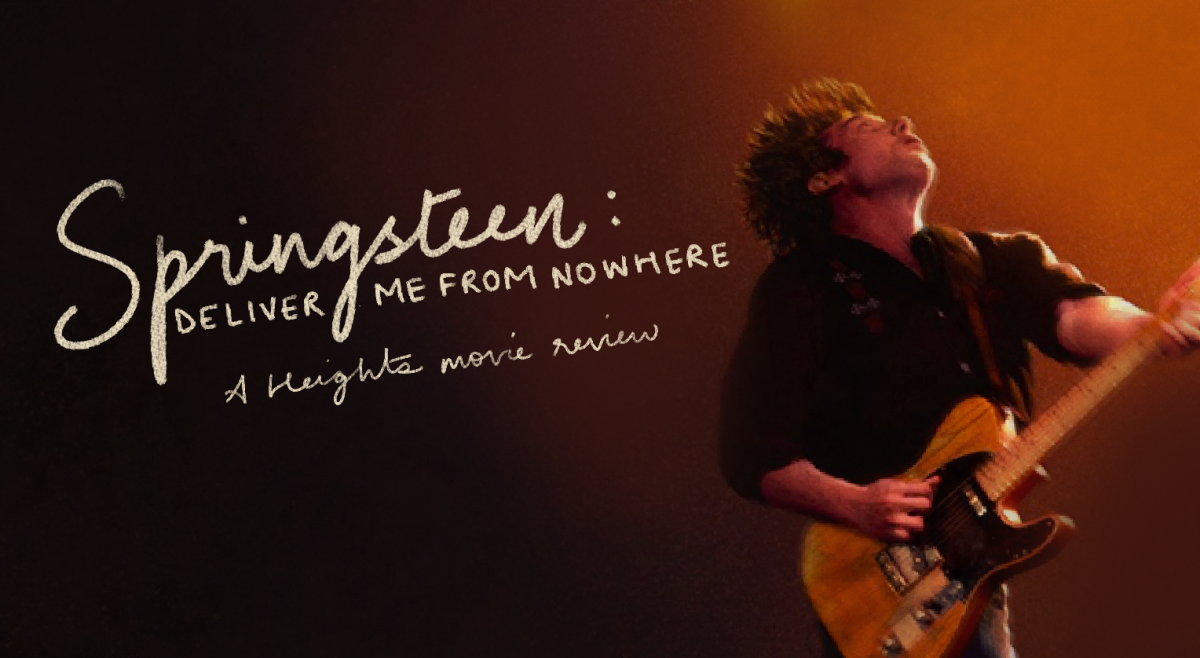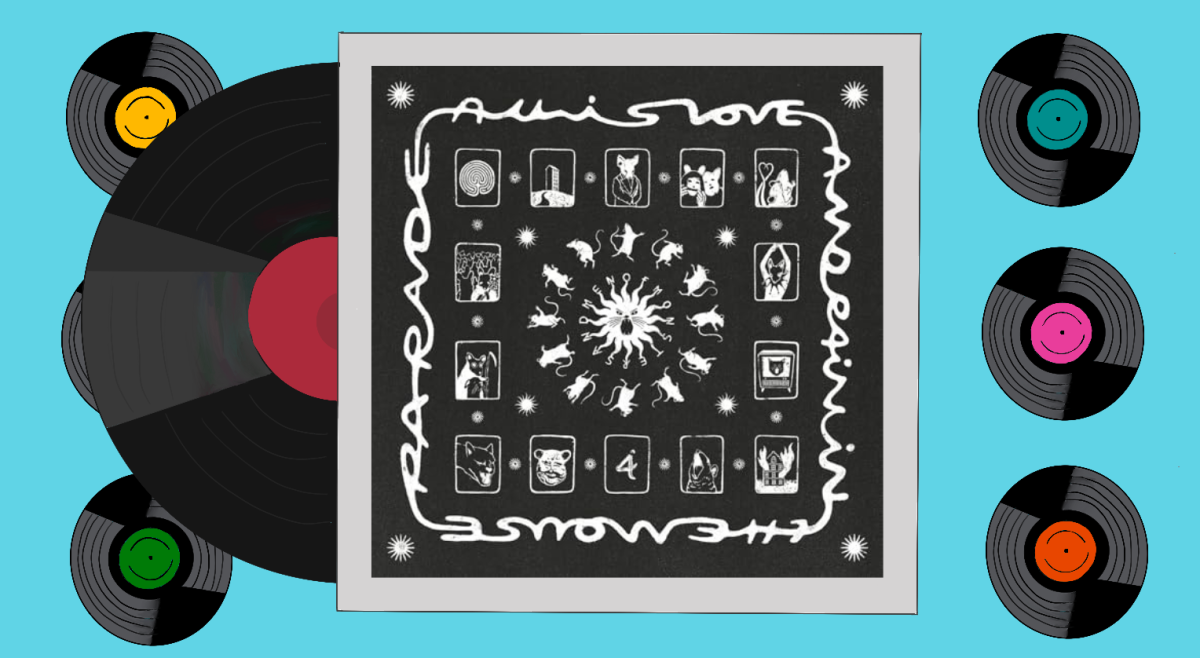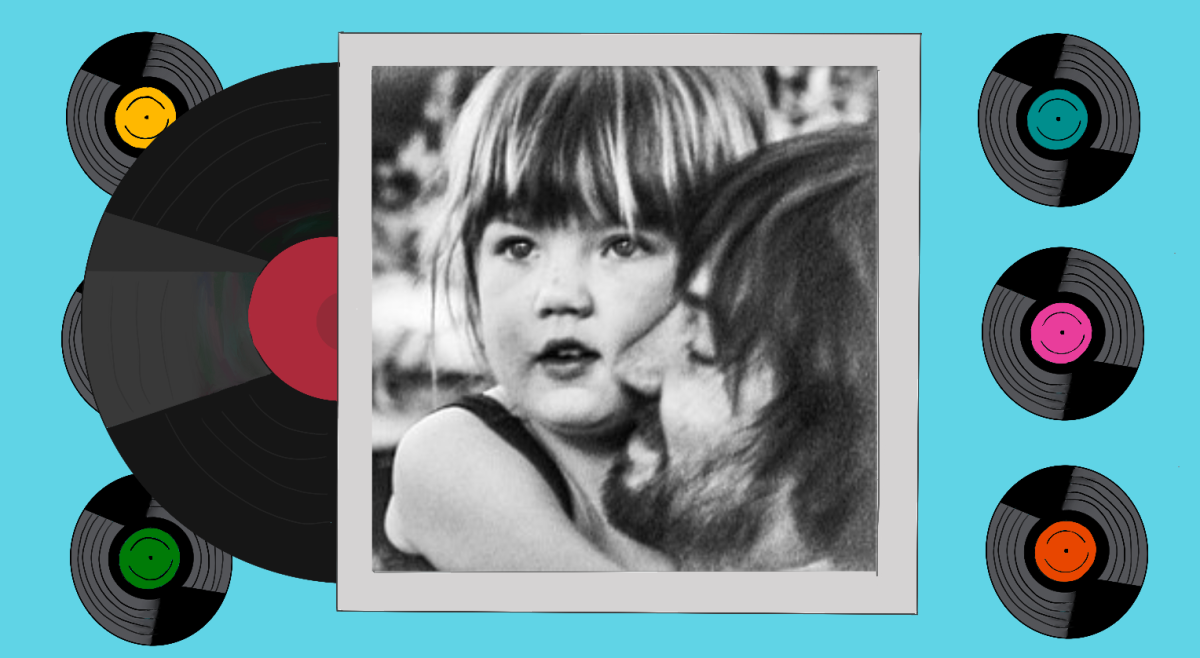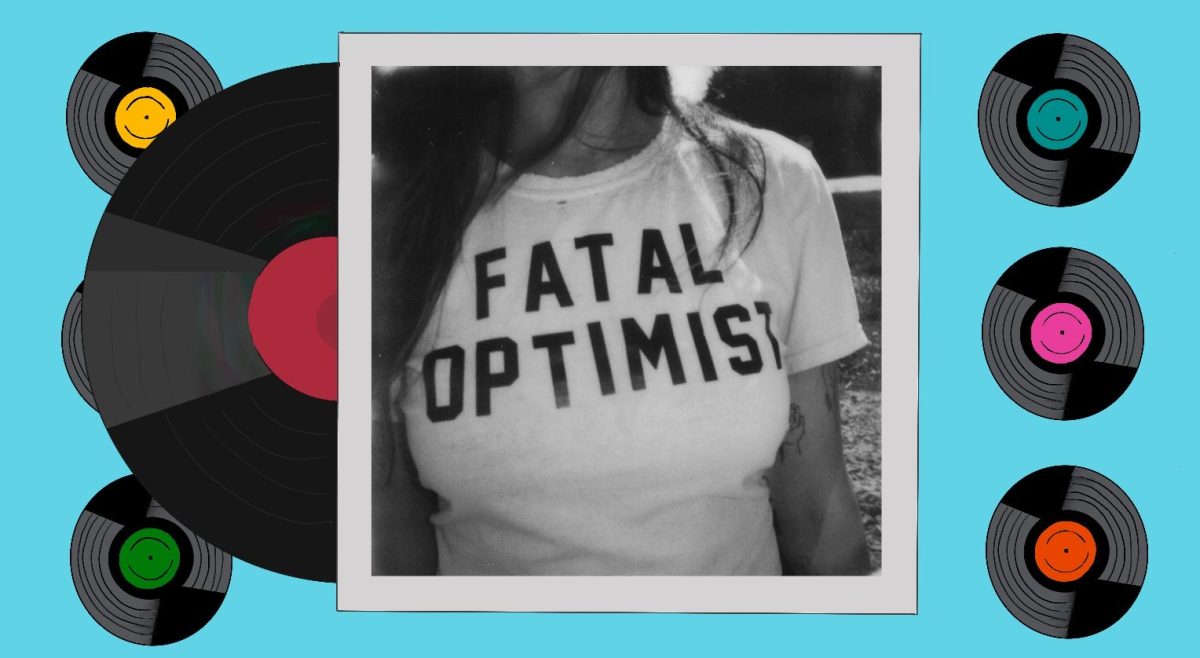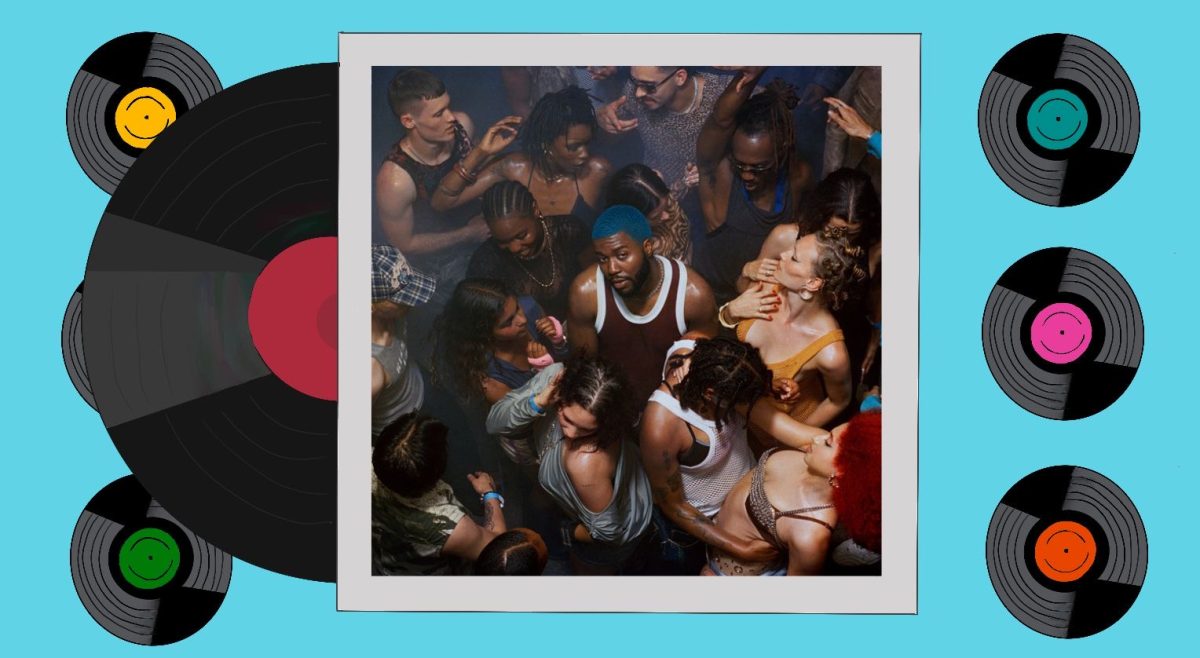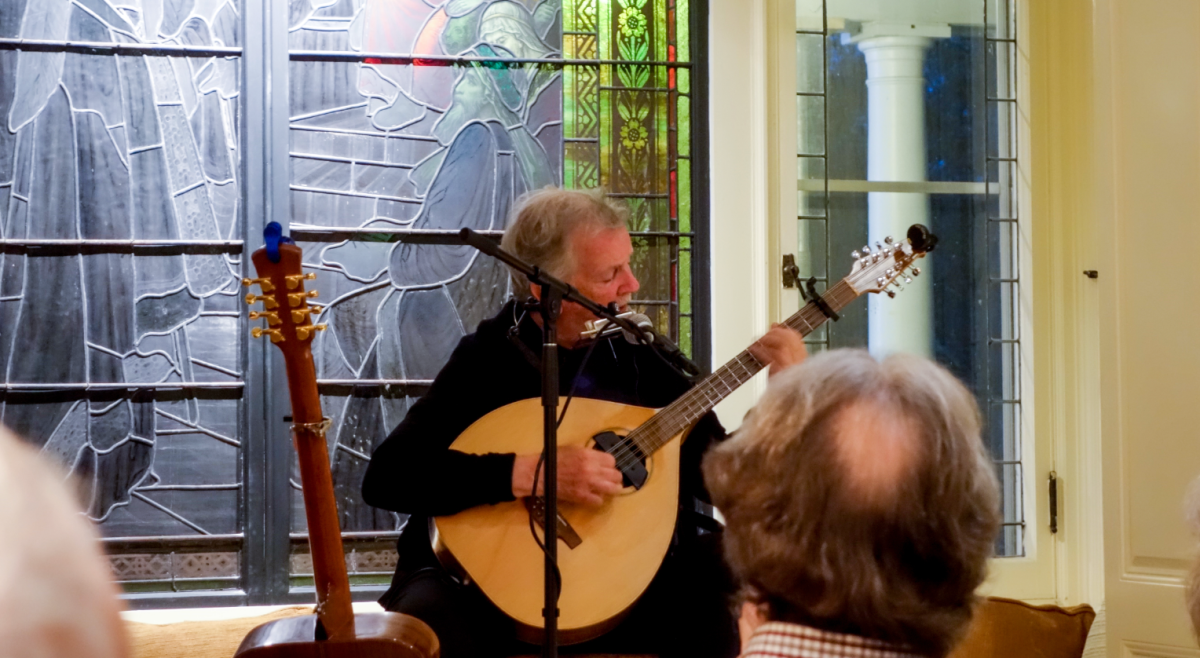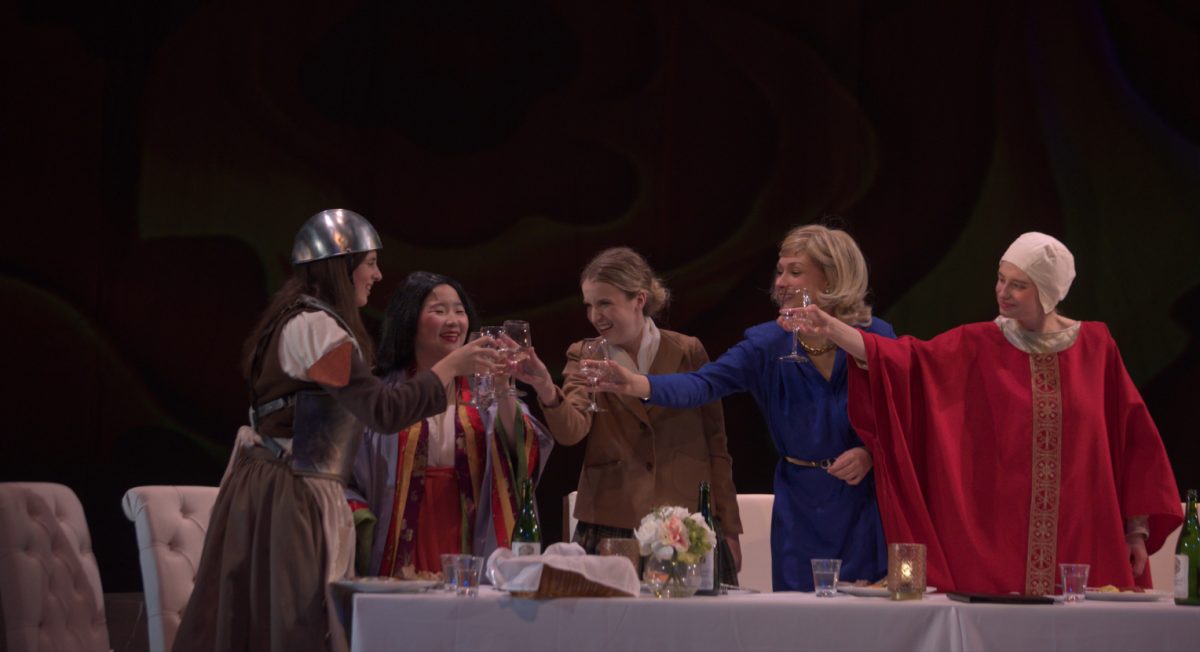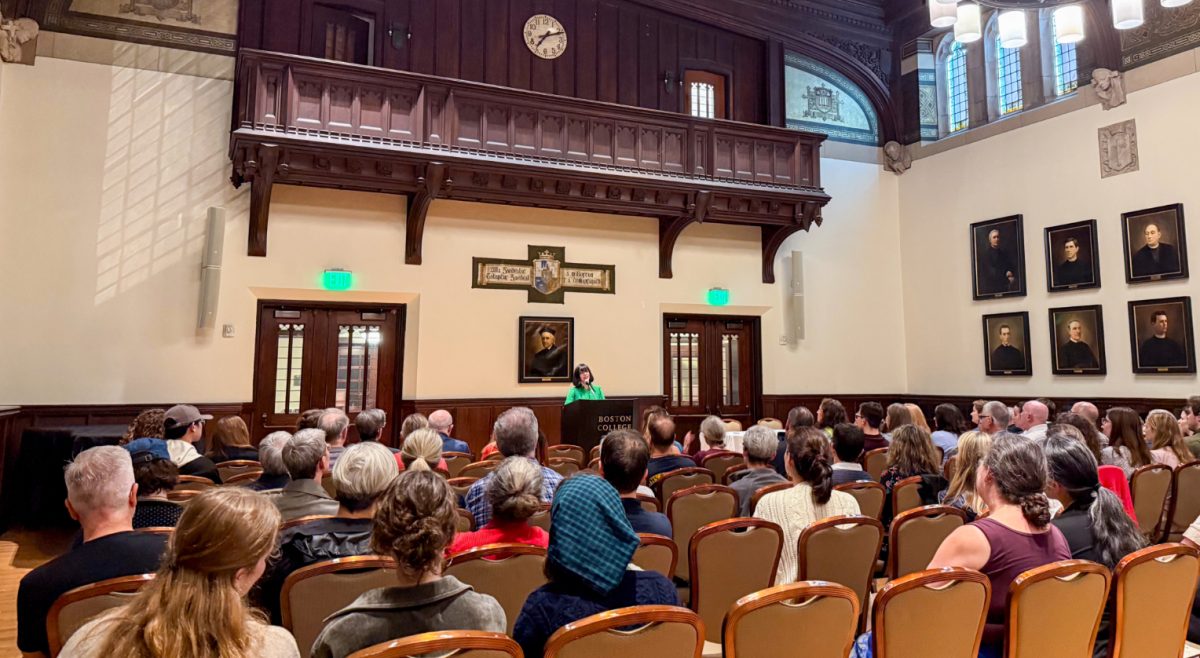The first sentence in the description for Tuesday night’s Undergraduate Government of Boston College event, “The Pursuit of Happiness: Mental Health in Hip Hop,” was a question: “Have you ever heard a rapper spit something so deep you needed to play the lyrics back?” As guest speaker Toni Blackman will tell you, the depth of hip-hop is such that anyone, if they really listen, should answer affirmatively.
Many consider The Message (1982) from Grandmaster Flash and the Furious Five as the birth of commercially successful conscious hip-hop. Ever since, countless artists have been using hip-hop as an outlet for their personal struggles and the struggles plaguing members of their families and communities. At “The Pursuit of Happiness: Mental Health in Hip Hop,” guest speakers Kimberly Ashby, LGSOE ’19, and Blackman led a discussion on the intersections of hip-hop and mental health, although, by the end, the discussion really turned into a freestyle session for everyone in attendance.
Ashby began the event by performing a cappella a song she wrote about depression and its effects. She then provided introductory remarks on mental health in general and how it functions within and affects hip-hop. Ashby noted that “for decades, hip-hop has given a voice to the voiceless, becoming a powerful global movement for self-expression.”
Next to lead the discussion was Blackman, the United States State Department’s first ambassador to hip-hop. She focused on the healing effects of hip-hop, particularly in how the freestyle cypher can invoke ritual and connection to facilitate growth. Blackman has been running her Freestyle Union Cypher Workshop for many years, a program that brings different artists together in attempt to connect with the spiritual aspects of shared rhythm and spoken word. Blackman explained how many of the artists she works with deal with different levels of mental illness, and how her workshop functions to provide a meditative and therapeutic method for them to work through their issues.
Freestyle cyphers originated as a way for emcees to showcase their talents of rhyme and flow. Initially, they were saturated with boasts and confrontation, themes that continue to define many circles in hip hop today. But Blackman, interested in the spiritual and communal element of cyphers, established rules in her workshop (i.e. no battling, no negative language) to sustain the positivity of the experience. For Blackman, cyphers serve as a form of connection—a way to build people up instead of tear them down. Cyphers are circular—they’re about the completion of thought, about giving and exchanging information, energy, and ideas. In short, they’re about community.
If you’ve ever partaken in a creative activity, you know what it’s like to feel in the “zone.” When engaged in a cypher, one can similarly become in tune with the rhythm during what Blackman aptly dubs “getting open.” “Getting open” is all about letting go of yourself in the moment, acting freely without conscious control of your movements or even what you’re saying. “Getting open” is the fullest example of what cyphers have to offer: the ability to let go of yourself and become a part of something larger.
But simply explaining the function of a cypher wasn’t enough for Blackman. She had attendees “warm up” by calling on them to name all the words they could think of that start with a certain letter. Then she asked for five volunteers to form a cypher of their own. Though choppy at first, the exercise gradually became more and more fluid and eventually progressed into the entire room coming together in a circle, sharing a common beat and adding different melodies, thoughts, lines, and words.
Hip-hop, and particularly its application in cyphers, can serve to bring people together under a common thread as well as open up conversations about mental illness and personal struggles. Anyone familiar with hip-hop, and perhaps even one who isn’t so familiar with it, should be aware of its power. Both speakers Tuesday night did a wonderful job presenting that power.
Featured Image by Kate Mahoney / Heights Staff

